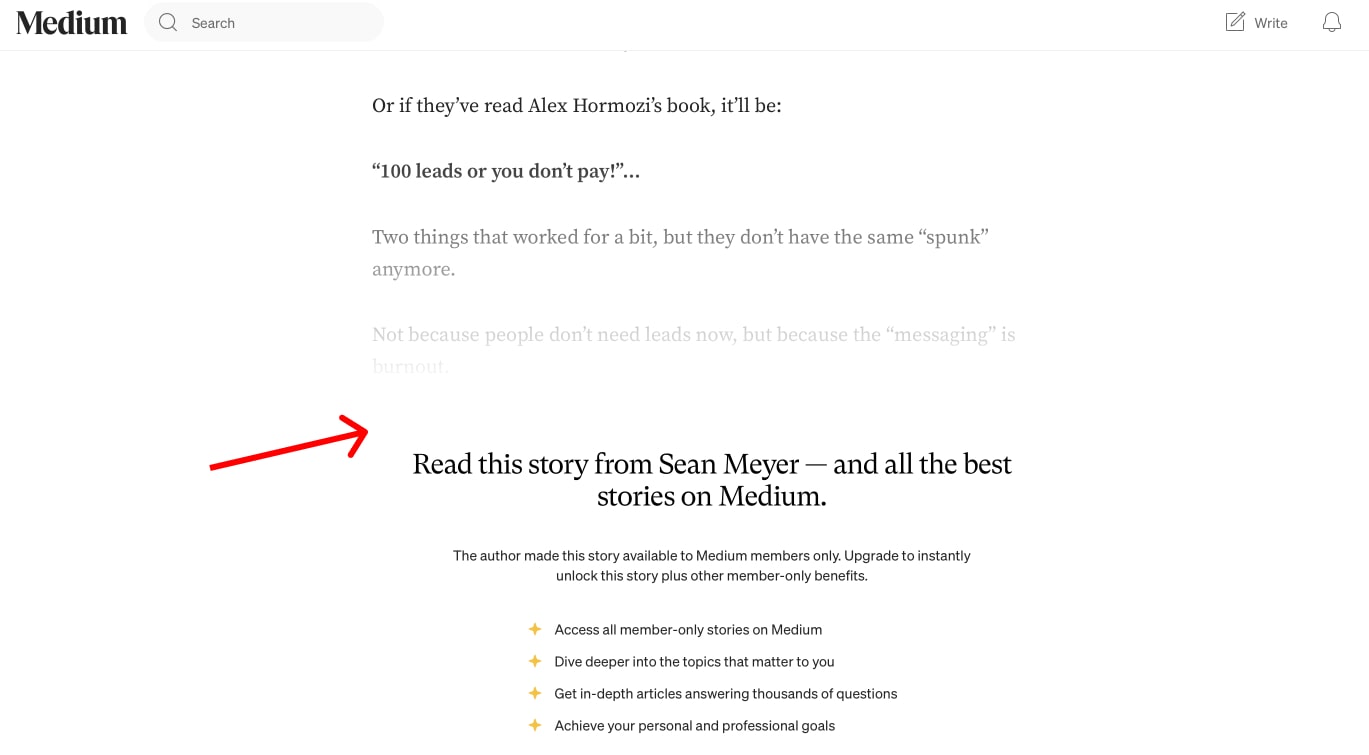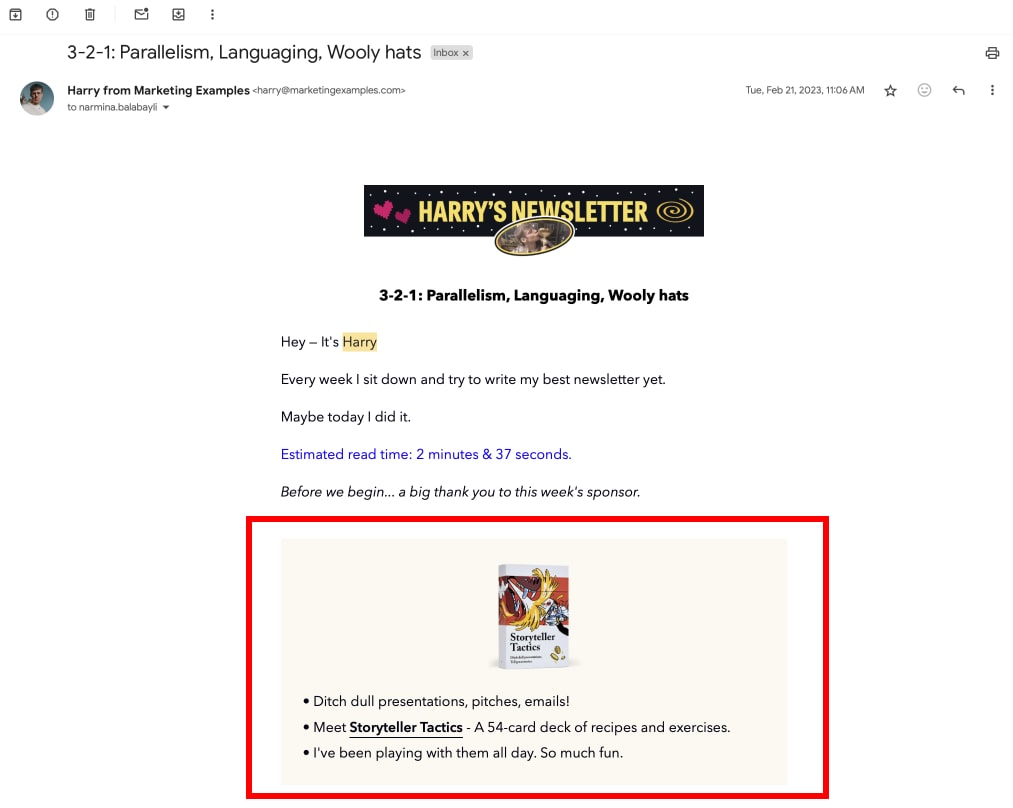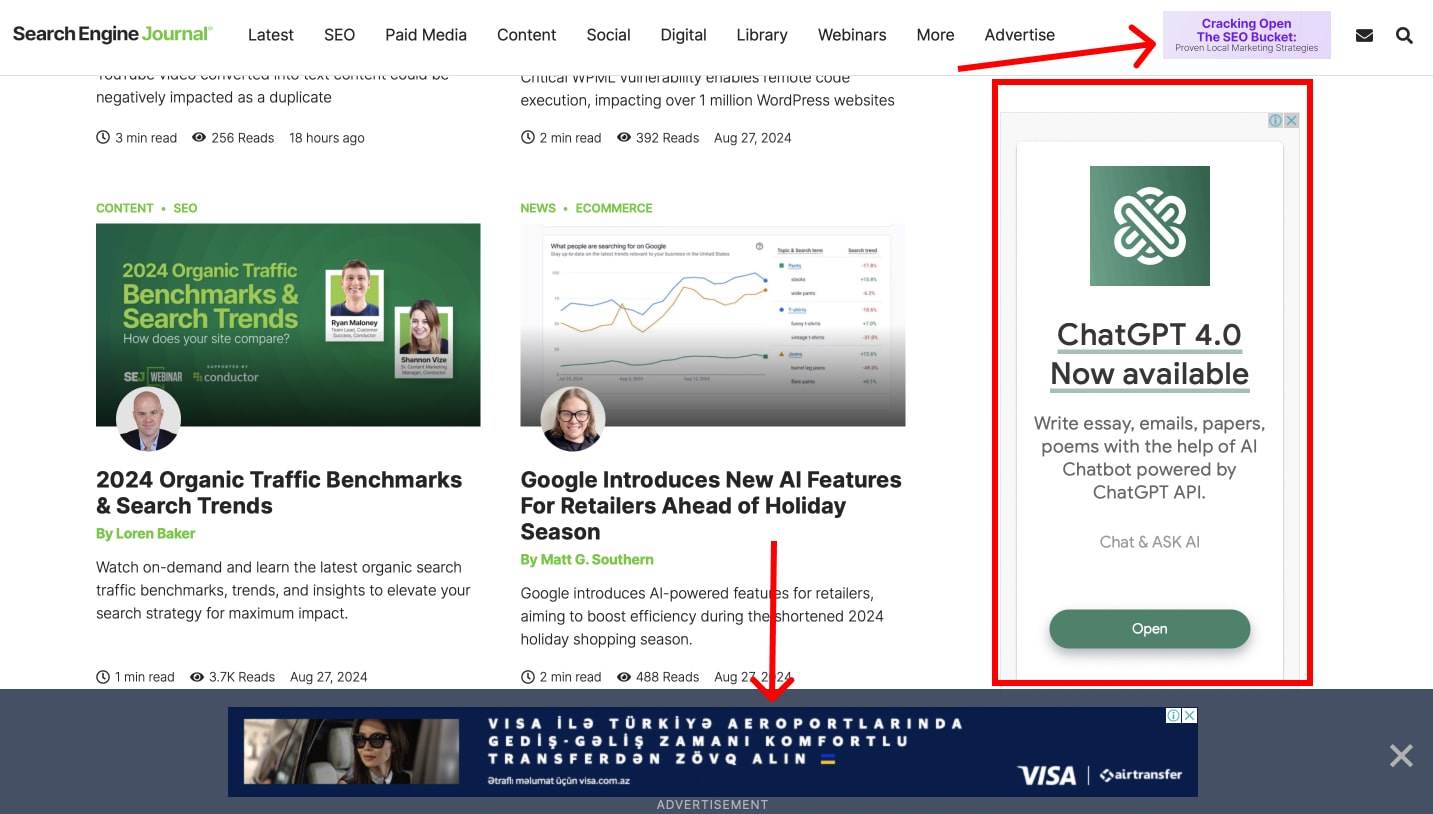Over the past few years, almost all of us became content creators on the Internet.
Some of us enjoy making videos, while others prefer expressing themselves through writing and blogging. If you’re a blogger, you might think of putting your time and energy into making some cash from your blog.
While running a blog, you can monetize your blog websites and make passive income.
And, if your blog is on WordPress, then this article is for you!
We’ll show you 8 tips to start earning money through the blog built on WordPress platform even if you are not that into the technical side of things!
8 ways to monetize WordPress blogging
#1 Start a membership program
For bloggers writing for a niche audience, setting up a membership program is a great way to earn money! All you need is to make some of your content members-only.
You can create this type of private access website in WordPress by using plugins; some create the feature for members only content, while some give the payment function for membership setup.
📖 You might also like to read password protection vs membership plugins.
With all these suggestions, you’re not just finding ways to monetize your blog; you’re also keeping your audience engaged. They can access exclusive content and give you tips or donation that goes directly toward creating more of what they love.
To create a membership website, you can use a WordPress Membership plugin, which allows you to make your blog private, create membership levels, and charge a one-time fee or set up a subscription model for readers to view your content. Additionally, you can configure email notifications to keep your readers engaged.
📖 You might also like to read: Plugins You Need to Create and Manage a Membership Site in WordPress
💡 Tip: Personalize the thank you page. Whether they’ve made a purchase or given a donation, a genuine thank you makes your reader feel valued. This positive experience increases the likelihood they’ll return or continue to support you, be it through future purchases or simply by staying engaged with your content.
#2 Make your blog posts private
One of the easiest and most popular ways to monetize your blog is by making it private and charging for giving an access.
Private content refers to web content that users pay or subscribe to in order to access, such as your blog posts. Essentially, this turns your blog into a membership site.
Here’s an example of private, members only blog post on Medium.
 Private blog post example on Medium platform
Private blog post example on Medium platform
You can use WordPress plugins, such as WP Full Pay to make your entire page, content fragments, and blog posts private.
#3 Add donation option to your WordPress blog
Accepting donations is another effective way to monetize your WordPress blog.
The easiest way to start is to simply ask your readers for their support–time for a reality check here! You really put lots of effort into writing content. When you create valuable and helpful content and if your reader notices that and finds your tips interesting and usable, he or she wouldn’t mind giving a small amount.
📖 You might also like to read: How to Add a Payment Gateway to Your WordPress Blog.
Adding a way for readers to give you tips or donations without fuss is a smart move – check out platforms like PayPal or Stripe if you’re not based in the US. Keep it simple: set up a Stripe account, and use a plugin on your WordPress blog to add a payment button. This lets your readers send you a few bucks as a thank you.
For instance, you can add a payment button like “Support My Blog” or make a friendly request like “Buy Me a Tea” to encourage donations on your blog pages, footer area, or on a popup.
Several popular platforms like Patreon, Buy Me a Coffee, or Ko-fi also allows you to accept donations from your fans and be closer to your audience/members. These platforms are great for creators producing audio, video, and other visual content.
Adding donation buttons to your blog is one of the easiest ways for you to make money without having to change how they write or what you write about. If you use WordPress, there are plugins like WP Full Pay that makes it easy to add these buttons not only for donations but for other payments too, such as the payment form for your eBook!
💡 Tip: Make the donation buttons visible and encourage your readers! Also, create a custom thank you page to show appreciation and let them know how their support helps keep your blog going.
You might also like to read: The power of suggested donations: how to ask for donations?
#4 Create your own merch
Creating merchandise is a fun and creative way to monetize your blog.
If you’ve built a community – loyal readers around your blog, you can get creative with designing merch that resonates with your readers.
To sell your merch on WordPress, you don’t necessarily need to install WooCommerce. You can create a simple store page on your WordPress site and start selling your products directly. You can get help from print on demand plugins.
You might also like to read: How to sell products on WordPress without WooCommerce.
#5 Accept sponsorships
If your blog has good traffic and a loyal readership, you may attract sponsors—or they may even reach out to you.
Sponsorships involve partnering with brands or companies that pay you to promote their products or services on your blog. This can include sponsored posts, banner ads, or even mentions in your newsletter.
If you’re looking to build a professional blog that attracts sponsorships and partners, working with a creative agency can help you design a site that stands out while maximizing monetization opportunities.
For example, MarketingExamples which has nearly 130.000 subscribers, places sponsors like SEMrush on both blog posts and newsletters.
 Marketing Examples placing sponsors on email newsletter
Marketing Examples placing sponsors on email newsletter
#6 Run affiliate marketing
Affiliate marketing is a win-win situation for both bloggers and product owners.
Affiliate marketing is a marketing arrangement in which affiliates earn a commission for each visit, signup, or sale they generate for a merchant.
There are several tools available that you, as a blogger, can use to let potential partners know you’re open to affiliate marketing. These tools include platforms like Rewardful, TapRefer, Affise, etc.
However, it’s important to ensure your blog’s SEO is well-optimized, and that you have good traffic and a loyal readership to encourage merchants, founders, marketers place affiliate links on your content.
#7 Display ads
Digital display advertising involves using online graphics like banners, text, images, videos, and audio to promote products or services. The main purpose of these ads is to display company promotions on third-party websites. Display ads are often interactive, allowing brands and advertisers to engage more deeply with users.
However, it’s important to note that display ads can sometimes annoy your readers, especially if they’re too intrusive or disrupt the user experience. To balance blog monetization with user satisfaction, consider using non-intrusive ad formats and placing ads thoughtfully on your site.
Here is an example from Search Engine Journal displaying ads on their blog:
 Search Engine Journal placing Display Ads on blog
Search Engine Journal placing Display Ads on blog
#8 Monetize backlins (link insertions)
As your domain rating grows, you may have the opportunity to monetize your blog through paid guest blogging, link insertion, or link exchange. This practice, often considered part of grey hat SEO, involves getting paid to post links on your site and can play a role in online reputation management by strategically aligning with trusted sources and quality content.
While monetizing links can be profitable, it’s important to approach this carefully. Overusing or improperly managing paid links can harm your site’s reputation and search engine rankings. Always ensure that any monetized links are relevant and provide value to your readers.
5 tips to increase likelihood of blog monetization
By now, we’ve explored various ways to monetize your WordPress blog.
Doing what you love—creating valuable content for your readers—seems like the ideal path for content creators to make money from blogging.
However, simply displaying ads or creating a membership site alone is not enough to generate significant revenue. Monetizing a website is not easy and it requires time and effort. You need to understand your target readers, choose a niche that appeals to them, focus on SEO and distribution, and come up with topic ideas that resonate with your audience.
📖 You might also like to read trending membership models in 2025.
Here are the 5 most important things you must focus on to maximize your earnings from blogging:
Select your niche
The first step is choosing a niche that not only has a dedicated readership but also aligns with your target audience, interests you, and you have knowledge on the topic. This is especially important if you want to use website monetization ways such as making your content private, accepting donations, creating merch, affiliate marketing, and attracting sponsors.
If your main objective is to make money from blogging, you’ll need to select a niche that can potentially attract sponsors and affiliates. Niches like pool services, gardening, or other specialized areas have a strong market demand and interest.
Create valuable content
If you want to make money from your blog, delivering value to your readers is essential.
Creating high-quality, valuable content not only boosts your SEO and increases readership but also gives people a reason to pay for access or show their appreciation through donations. When readers see the value in your content, they’re more likely to engage with it and support you with monetary gifts and donations.
Focus on SEO
SEO is a long-term strategy that can help you attract organic traffic without spending a penny.
If you want to succeed in the blogging world, investing your time and resources in SEO is crucial. By optimizing your content for search engines, you can steadily grow your audience and increase your chances of monetization over time. For example, the more traffic you have on your website, the more you’ll make form display ads.
Promote your blog on other channels
It’s important that your audience knows you and values your content before they’ll be willing to subscribe.
For promoting yourself, engage actively in related subreddits, IndieHackers, online communities in Slack and Discord.
There are numerous communities where you can gain attention and connect with your target readers. For example, participating in niche subreddits where your audience hangs out can be highly effective to promote your blog.
However, to win the hearts of community members, it’s important to provide value first. Keep in mind that platforms like Indie Hackers or some subreddits often have strict rules about self-promotion, so be sure to contribute meaningfully before promoting your blog.
Work on EEAT
To build credibility and attract a loyal audience, focus on E-E-A-T—Experience, Expertise, Authoritativeness, and Trustworthiness.
Share your experience and background in your website to establish yourself as an authority in your niche. Demonstrating your expertise not only builds trust with your readers but also enhances your blog’s credibility. This, in turn, makes your content more appealing to both your audience and potential sponsors.